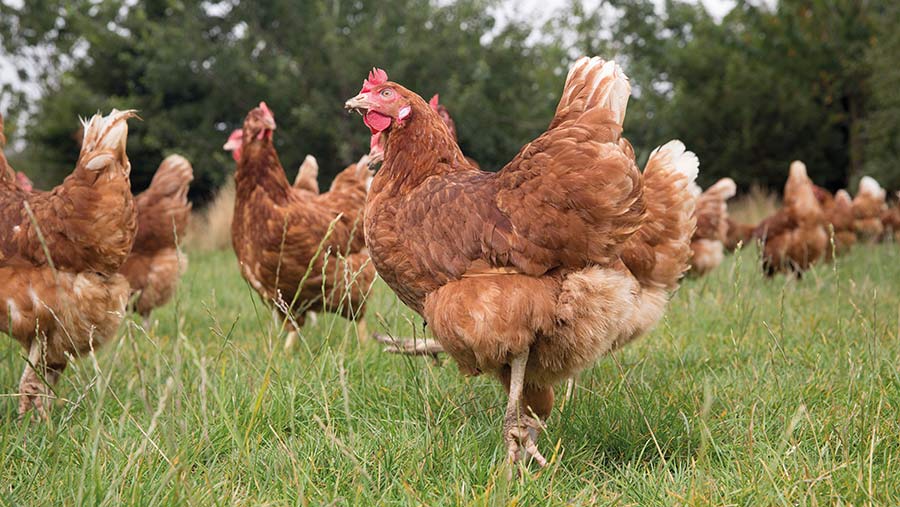Northern Ireland lifts compulsory bird flu biosecurity rules
 © Tim Scrivener
© Tim Scrivener Mandatory biosecurity measures for poultrykeepers in Northern Ireland are being relaxed as of Friday (2 June), with the lifting of the Avian Influenza Prevention Zone (AIPZ).
The move follows the downgrading of the bird flu risk in NI to “low”.
See also: Avian influenza prevention tips and how to handle an outbreak
While this does not mean there is no risk, there have been no cases of avian influenza in poultry in NI since the confirmation at a smallholding in Enniskillen more than a year ago.
Chief veterinary officer for NI, Robert Huey, thanked the poultry sector for its “determined efforts” to protect flocks, but urged continued vigilance.
“Although all mandatory restrictions have now been lifted, the biosecurity requirements set out for the AIPZ should still be considered good practice,” he said.
“We are urging all birdkeepers, whether they have a few birds or thousands, to adhere to the guidance as much as is practically possible.”
The AIPZ measures, imposing the strictest and compulsory biosecurity measures on poultry flocks, were introduced in NI on 17 October 2022.
As a result of their lifting, poultry and bird gatherings are now permitted, subject to the provisions of a General Licence available on the NI department of agriculture website.
Great Britain
Despite the change in NI, the current disease picture means the AIPZ remains in place elsewhere in Great Britain.
This does not include a housing order, however, which was lifted from the AIPZ on 18 April 2023.
Defra has also said it will be consulting soon on whether to remove the 16-week limit for free-range flocks when a housing order is put in place, after which their eggs must be reclassified as “barn”.
The intention is to commence this consultation before the summer recess and shorten it to eight weeks, rather than the usual 12 weeks.
